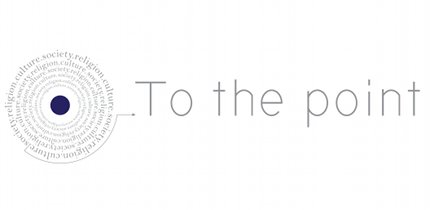Can insinuations be malicious? and what kind of effect do they leave on the receivers and what do they imply about the aggressors?

“How’s Laila? I haven’t heard from her in a while?” I inquired over a catch-up coffee.
“Oh gosh I’m no longer in touch with her,” replied Amina. “I had to remove her from my life because her presence was too toxic to my wellbeing.”
She halted, as if doubtful if she should enclose anymore. Comforted by my bewildered expression, she sighed and continued:
“I could no longer handle her negative effect on me. At first, she would drop words like (yal thakiyah – oh smart one) implying that I’m stupid.”
“But Amina, did she criticize you?” I wondered.
“I wish!” she replied. “Criticizing me would have been much better than the malicious hints that were undermining my confidence indirectly. She would, for example, insinuate that men find me old and boring by referring to my ‘Hayat al Fahad actress style.‘ Or she’d insinuate about my prospects in front of others by saying: ‘I wonder which man would even consider marrying (ba’ath elnaas) –someone). She always directed insults at ‘SOMEONE’. By the time my mind connected the dots that I was that ‘SOMEONE’, I felt helpless. The anxiety I experienced lingered within me and wreaked emotional havoc. However, friends are supposed to make you feel better, so I chose to eliminate this so-called friend from my life.”
I left that day heavy yet intrigued that Amina ended a long-term relationship because of an unfavorable communication style.
Insinuation, in Arabic is: naghza نغزة, which means: an indirect form of communication. Insinuations are harmless if they are polite and motivated by tact. For example, a wife can insinuate for a specific anniversary gift by repeatedly mentioning the item’s beauty. However, “unpleasant insinuations are those that involve the speaker’s malicious pleasure over the negative effect the message will have on the interlocutor” (1).
I spoke to my circle about unpleasant insinuations and realized that it is more common than I initially thought. They all had interesting stories to share, the funniest being a girl who forgot to invite another to her wedding. Three years onwards and she still gets hints here and there about the true intentions behind the forgetfulness. This made me think of the speakers: do they not realize that the derogatory effects of their statements make them appear sly and spiteful?
Marcella Papi analyzed insinuators in depth in her paper ‘The Pragmatics of Insinuation’. She noted that there ‘are varying degrees of nastiness embodied in insinuations’(1). She went on to explain that the insinuator resorts to this communication style because they don’t want the insults to be attributed to them. However, what about the victims of insinuations? How can one deal with these bullies?
One must understand that malicious insinuators speak from a place of insecurity and this behavior empowers them. Hence, it would be wise not to take their hints personally. Confrontation and taking a stand is one solution, but in my humble opinion, such individuals have too many issues that it may not be worth one’s time. This is why I recommend blocking such negative people.
At the end of the day, we are social beings who cannot live in isolation. But if having toxic people in our circle will make us feel isolated then we are better off eliminating them.
Are there insinuators within your circle who are affecting your wellbeing? And what do you intend to do about it?
References:
- Papi, marcella bertuccelli; THE PRAGMATICS OF INSINUATIONS; intercultural pragmatics, 2014, 11(1); 1-29.




I believe people who do such thing dont habe inner peace they have personal issues
You are right. Personal internal and complicated issues which should be addressed by themselves once they become aware. Hopefully this article will trigger such a reaction *fingers crossed*
Interesting point. I wonder why people use that method to get their opinion across, is it culture? is it they way they’re raised? or is it the fear of facing their own flaws? It’s a bit like silent bullying, where they don’t really say it, but actually say it.
I’m pretty sure many have experienced and over time gets fed up with it. Karma takes care of the low ones anyways. Thanks for sharing, very interesting point. XOXO
Yes you are right. All 3 points mentioned above are causes for this behavior.
When it comes to culture, research is scarce and the statistics done were not representative enough.
When it comes to how the insinuators were raised, Dr Jassim AlMutawa heavily explains how an environment will be reflected in the youth, for example a lying child most probably picked up the habit from his home environment.
When it comes to the third reason, most insinuators are rated low on the Hawkins Awareness Scale of consciousness, most likely a log below 200. This explains why they are unable to face their own flaws and use insinuation as a shield that covers their weaknesses.
No matter the reason, this remains a form of verbal abuse that should not be tolerated.
Thank you for your insights and feedback.
Totally Agreed with you and everything start from your home how you grow up
Great article Shurooq, insightful and sensitive . So truly you. Im proud of u and every achievement of urs.
Thank you so much do your feedback